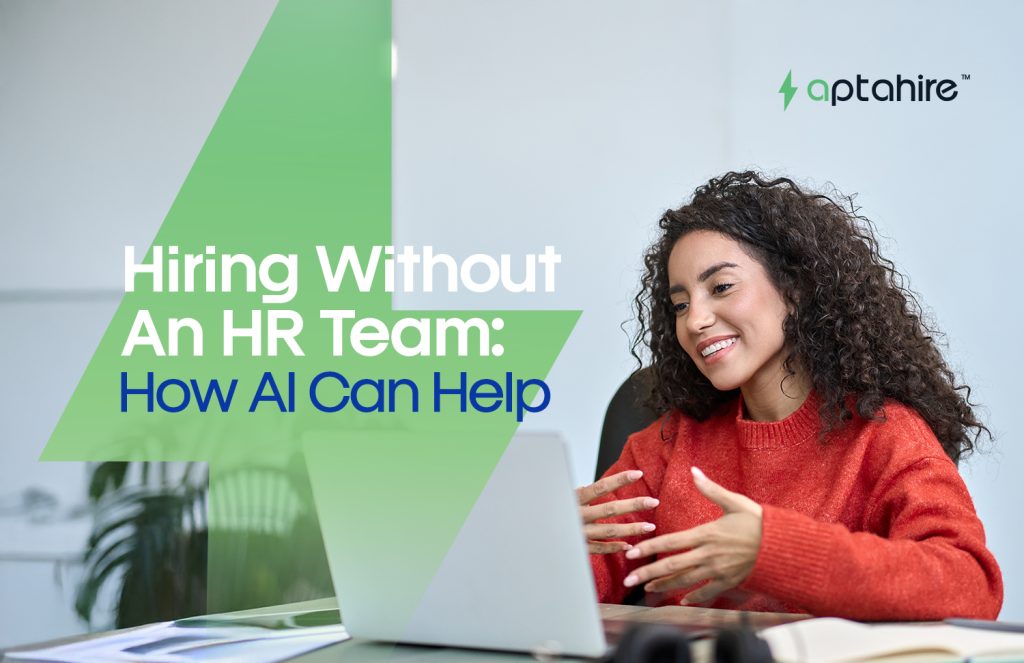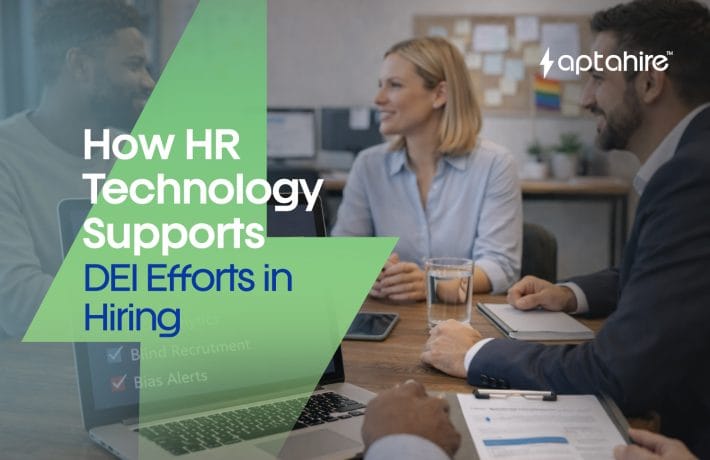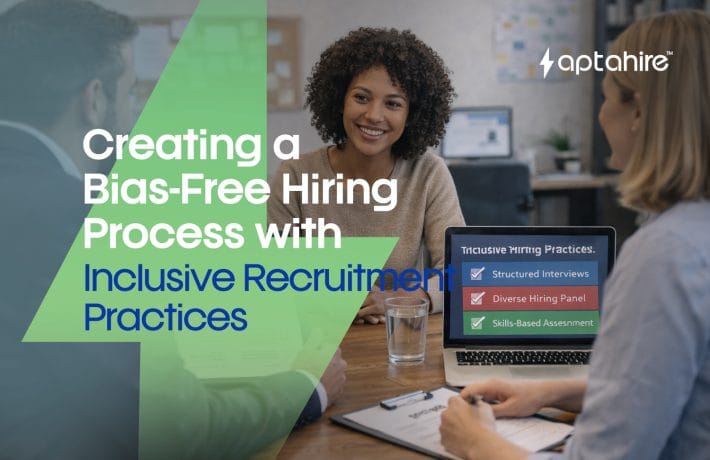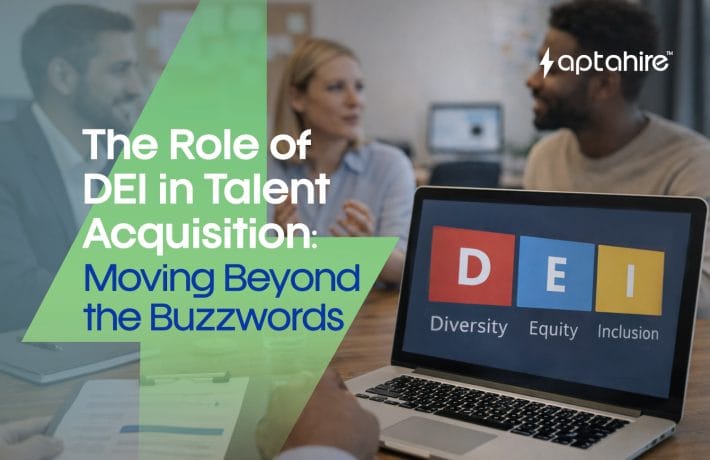Hiring Without an HR Team: How AI Can Help

Running a small business is no easy feat, especially when you’re the founder, marketer, operations head, and recruiter all rolled into one. For many startups and SMBs (small and medium-sized businesses), having a dedicated HR team is a luxury, not a norm. But hiring the right talent is critical to business success. So how do you build a great team when there’s no HR department to rely on?
Now enters AI in hiring.
With the help of Artificial Intelligence, even a two-person startup can now hire like a Fortune 500 company. In this blog, we’ll explore how AI is reshaping the recruitment process for businesses without HR teams, and how you can leverage it to build smarter, faster, and fairer hiring processes.
The Challenges of Hiring Without HR
Hiring is more than just posting a job on a board and waiting for resumes to flood in. It includes:
- Writing job descriptions
- Sourcing candidates
- Screening resumes
- Coordinating interviews
- Assessing candidates
- Managing communication
- Making offers
- Onboarding new hires
Without an HR team, all of these tasks fall on the founders, department heads, or office managers, people already stretched thin. The result?
- Slower hiring timelines
- Missed opportunities with high-quality candidates
- Poor candidate experience
- Higher turnover due to mis-hires
- Hiring based on gut feeling instead of data
According to a LinkedIn study, 64% of small businesses cite hiring as their top challenge, and 48% say they lack the time and resources to manage it effectively. Additionally, a Glassdoor study shows that the average hiring process in the U.S. takes 23.8 days, a timeline that can stretch even longer for SMBs doing everything manually.
What Can AI Do That a Human Can’t (Quickly)?
AI tools bring speed, scale, and structure to the hiring process. Here’s how:
1. Automated Job Descriptions
AI can generate optimized, inclusive job descriptions in seconds based on industry best practices and role requirements. It eliminates biased language and aligns your posting with current job market trends, saving you hours of writing and tweaking.
2. Smart Resume Screening
AI systems can scan and shortlist resumes in a fraction of the time it takes a human. They match keywords, assess experience relevance, and even score candidates based on job fit and personality compatibility.
“Recruiters spend an average of 6 seconds reviewing a resume,” according to TheLadders. AI can scan hundreds in less than a minute, allowing you to focus on top-tier talent faster.
3. Candidate Ranking and Filtering
AI hiring platforms apply machine learning algorithms to rank candidates by:
- Role match
- Cultural fit
- Skill sets
- Historical success patterns
This drastically reduces bias and brings the most qualified applicants to the top.
4. Video Interviews with AI Insights
AI-powered platforms like HireVue, Pymetrics, or Aptahire can analyze candidate responses in video interviews. These tools evaluate tone, facial expressions, speaking pace, and sentiment to offer behavioral insights and red flags that humans might miss.
5. Automated Communication
From scheduling interviews to sending reminders, rejections, or updates, AI can handle emails and messages, improving the candidate experience and saving you admin time. According to CareerBuilder, 67% of job seekers say they have a more favorable view of a company that keeps them informed throughout the application process.
6. Data-Driven Decision Making
AI platforms provide real-time dashboards and predictive analytics for:
- Time-to-hire
- Candidate drop-off rates
- Channel effectiveness (e.g., which job boards are working best)
- Interview conversion rates
- Candidate pipeline forecasting
These insights allow better decision-making and continuous improvement.
Why AI is a Game-Changer for Founders and Lean Teams
Here’s why AI works so well for non-HR users:
- It’s intuitive: Most modern AI hiring platforms have drag-and-drop interfaces, templates, and guided setups.
- It’s scalable: Whether you’re hiring 1 person or 50, the process stays consistent and efficient.
- It’s budget-friendly: Tools like BreezyHR, Recruitee, Manatal, and Zoho Recruit offer SMB-friendly pricing models starting as low as $50/month.
- It reduces hiring costs: According to SHRM, the average cost-per-hire is $4,700. AI can slash that by up to 30-40% by eliminating the need for recruitment agencies, reducing mis-hires, and minimizing time spent per candidate.
Real-World Example: A Startup Success Story
Let’s say you run a 5-person SaaS startup. You urgently need a UI/UX designer, but don’t have a recruiter or a hiring strategy.
Using an AI hiring tool:
- You generate a job description in 2 minutes using AI prompts.
- The platform posts across 15+ job boards automatically.
- You receive 120 applicants over a week.
- AI screens and ranks the top 10 candidates using skill match and portfolio analysis.
- You conduct one-way video interviews, scored and analyzed by AI.
- Personalized messages are sent to all applicants, automatically.
- You finalize and onboard the right candidate in 10 days, instead of 30-45.
Time saved: ~25 hours
Cost saved: ~$2,500
Candidate experience: Seamless and professional
Founders’ workload: Reduced significantly
Ethical Considerations and Fairness
One concern many founders have is: “Can AI be biased?”
The answer is yes, if not designed responsibly. That’s why choosing ethical, transparent AI systems is crucial.
Make sure the tools you use:
- Are built on diverse, inclusive data sets
- Follow EEOC guidelines (Equal Employment Opportunity Commission)
- Offer transparency in scoring and decision logic
- Allow you to customize or review AI decisions
- Anonymize candidate information where appropriate
Using fair AI hiring helps you:
- Increase diversity in the workplace
- Focus on skill over background
- Minimize unconscious bias
How to Get Started with AI Hiring (Even Without Experience)
- Choose the Right Platform: Compare tools like Aptahire, Manatal, or Recruitee based on features, pricing, and ease of use.
- Define Your Hiring Needs: Don’t try to automate everything at once. Start with one role.
- Let AI Handle the First Round: Use the platform to screen, rank, and schedule interviews.
- Use Structured Interviews: AI tools can help you ask consistent questions and evaluate answers objectively.
- Make the Final Call with Confidence: Use AI insights plus your own intuition to hire the right fit.
- Review & Optimize: Use data dashboards to understand what worked and refine your process.
Final Thoughts: HR or Not, Hiring Must Go On
Just because you don’t have an HR team doesn’t mean you should settle for slow, outdated, or biased hiring practices. AI is no longer a futuristic luxury, it’s a practical, affordable tool that levels the playing field for SMBs and startups.
With the right AI partner, even a solo founder can:
- Attract better candidates
- Hire faster with less effort
- Reduce costs and improve ROI
- Deliver an amazing candidate experience
- Hire based on data, not gut feeling
In today’s competitive job market, the smartest move isn’t hiring an HR team right away, it’s hiring with AI.
Because great talent builds great businesses, and AI helps you find it faster, fairer, and smarter.
FAQs
1. Can small businesses really afford AI hiring tools?
Yes! Many AI hiring platforms are specifically designed for startups and SMBs. Tools like Manatal, Recruitee, and Aptahire offer scalable pricing models, starting as low as $50/month, with features like automated job posting, resume screening, and video interviews. These tools cost a fraction of what a recruitment agency or internal HR team would.
2. Will AI replace the need for hiring managers or founders in recruitment?
No, AI enhances, not replaces, your role in hiring. It automates repetitive tasks like screening and scheduling, but key decisions (like final interviews or culture fit) still need human judgment. Think of AI as a smart assistant that helps you focus on the most important parts.
3. How accurate is AI in identifying the best candidates?
AI hiring tools use advanced algorithms to match candidate skills, experience, and even behavioral patterns with job requirements. While not perfect, studies show that AI can reduce time-to-hire by up to 60% and improve candidate quality by 30-40% when used properly.
4. Is it difficult to set up an AI hiring system without an HR background?
Not at all. Most AI hiring platforms are user-friendly, with drag-and-drop dashboards, templates, guided job creation, and automated workflows. You don’t need to be tech-savvy to get started. Some even offer onboarding support or virtual assistants.
5. How does AI improve the candidate experience?
AI improves speed and communication. Candidates receive timely updates, consistent evaluations, and faster responses. Tools can automate interview scheduling, send personalized emails, and provide feedback, helping 70% of candidates feel more positively about your brand.
6. Can AI hiring tools help with remote or hybrid hiring?
Absolutely. AI is tailor-made for remote hiring. From AI-powered video interviews to digital assessments and background checks, everything can be done virtually, making it ideal for startups with distributed teams.
7. What about bias in AI hiring? Is it truly fair?
Bias can exist in any system, AI included. However, ethical AI tools are trained on diverse data and offer anonymized screening and structured evaluations to reduce unconscious bias. Always choose platforms that are transparent, EEOC-compliant, and regularly audited.
8. What are the top benefits of using AI for businesses without HR teams?
Here’s a quick rundown:
- Save 20–30+ hours per hire
- Reduce hiring costs by up to 40%
- Hire faster (in days, not weeks)
- Improve candidate experience
- Access quality talent with less effort
- Make data-driven decisions
AI brings structure, speed, and scale to your hiring process, without needing a full-fledged HR department.



